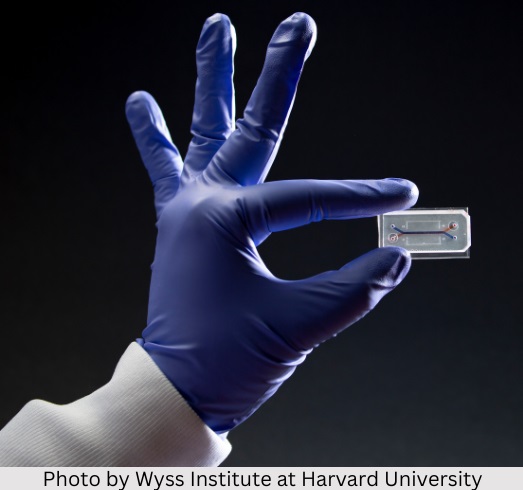Lyme patients: Your blood could hold the key to chronic Lyme

The Wyss Institute at Harvard University seeks Lyme patients to donate blood cells to support cutting-edge research.The process is painless and you’ll get paid for your time.
Swollen lymph nodes can be an early symptom of Lyme disease. Lymph nodes, lumps of immune tissue scattered throughout the body, play an important role in the body’s immune response against invaders like bacteria and viruses. The bacterium that causes Lyme disease, Borrelia burgdorferi, seems to “hide” in the lymph nodes, which does trigger an immune response, but one that is not strong enough to eliminate it.
Doctors think this could be a reason why some patients suffer from repeated attacks of Lyme symptoms, and why long-term antibiotics may not be effective for treating those symptoms. But how B. burgdorferi behaves in the body’s lymph nodes isn’t fully understood.
A group of researchers led by Harvard Principal Investigators Don Ingber and Girija Goyal is now recruiting chronic Lyme patients to donate their white blood cells for a cutting-edge study that will investigate the interaction of B. burgdorferi and human lymph nodes by growing lymph nodes in the lab.
Human Organ Chips
The scientists are using a technique developed at the Wyss Institute at Harvard University called Human Organ Chips. An Organ Chip is a device the size and shape of a USB memory stick made of a flexible hydrogel material. There are two hollow channels running through the device, separated by a porous membrane.
Wyss scientists discovered that when they put human B cells and T cells (two types of immune cells) into an Organ Chip, the cells spontaneously clumped together to form lymph node-like tissue. They confirmed that these tissues replicated many of the functions of human lymph nodes, meaning that they had created a lymph node that could be easily studied outside of the body.
The current research study will use B cells and T cells from chronic Lyme patients to create Lymph Node Organ Chips that the scientists will use to study how B. burgdorferi affects human immune responses.
Understanding this process could lead to the development of new treatments for chronic Lyme and improve the quality of life for the hundreds of thousands of people who are diagnosed with Lyme disease every year.
Eligibility
To be eligible for the study, patients must:
- Be 18 to 89 years of age
- Have been diagnosed with chronic Lyme disease
- Be willing and able to travel to and from a clinic for two visits. (Clinic sites are in Boston, MA and Philadelphia, PA)
Patients’ white blood cells will be collected via a process called apheresis. Blood is collected from one arm and passed through a machine that separates out some white blood cells and then returns the blood to the body. This process is painless and takes two to four hours. Patients will be compensated up to $550.
To learn more and register for this study, please visit the study page.
SOURCE: The Wyss Institute at Harvard University




















We invite you to comment on our Facebook page.
Visit LymeDisease.org Facebook Page